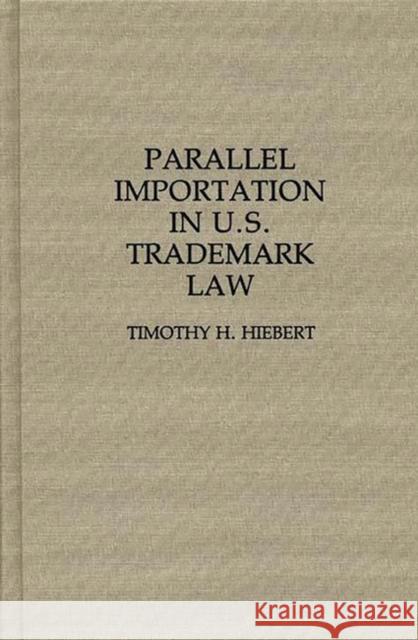Parallel Importation in U.S. Trademark Law » książka
Parallel Importation in U.S. Trademark Law
ISBN-13: 9780313289569 / Angielski / Twarda / 1994 / 192 str.
Over much of the past century, the law governing third-party importation of non-counterfeit, genuine goods has been obscured by conceptual uncertainty. In recent years, the debate over the gray market has centered on the fundamental reasons for trademark protection, and has raised the possibility of conflict between the two traditionally recognized purposes of trademark law--protecting consumers from deception and protecting trademark owners from lost sales.
Hiebert discusses the evolution of the universality and territoriality principles of trademark law, and develops a new understanding of the role of goodwill in resolving trademark infringement issues. Beginning with a review of the earliest days of trademark law, Hiebert traces the development of the twofold purpose and territoriality doctrines in the United States, and examines in detail the cases, statutes, and regulations governing parallel imports. Unlike other recent treatments of the subject, this work benefits from the availability of important archival materials, and devotes considerable attention to the nineteenth-century antecedents of modern parallel importation doctrine, and to the evolution of trademark doctrine within the broader context of American legal realism.











